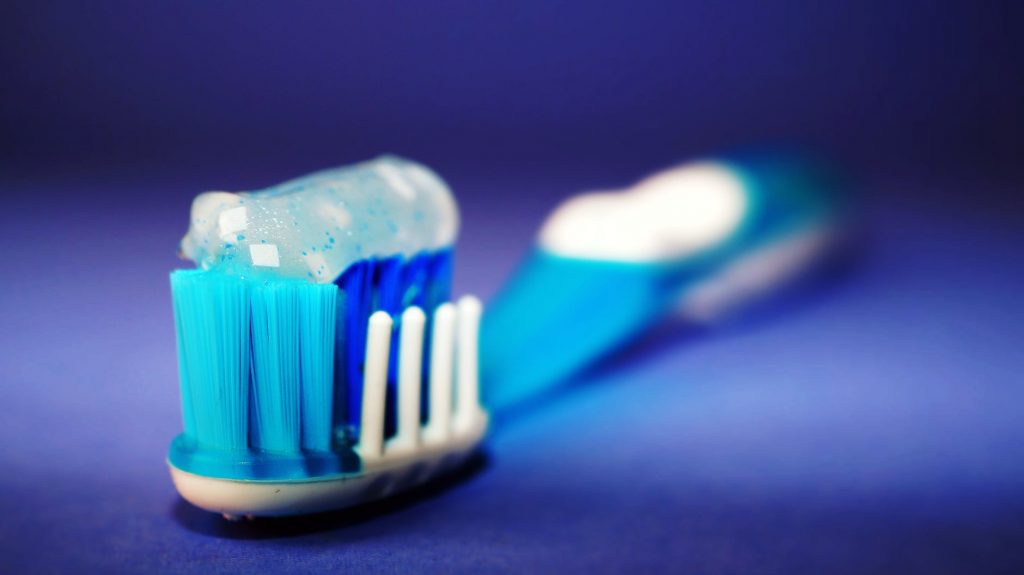Oral health is not usually the first thing that’s being considered for patients that have diabetes. Normally, doctors would order glucose blood test strips or a fasting blood sugar (FBS) test to check whether an individual has an abnormally high amount of the substance.
In this article, we’re going to show you how your mouth plays an important role in diabetes. We’re going to include what you should be looking out for, and what to do about these signs and symptoms.
This guide is not an absolute medical instruction on how to manage diabetes and you should consult a health professional for decisions regarding your health.
How Sugar Affects Your Mouth Health
The University of California has conducted studies on the sugar consumption of individuals in the United States. On average, each American consumes about 57 pounds of added sugar in a year, which is way more than normal. The American Heart Association recommends a measly 6 teaspoons of sugar for adult females, and 9 teaspoons for males.
Sugars cause cavities in the mouth. When table sugar is consumed, it is dissolved by several enzymes found in saliva. The resulting mix heightens the pH of the oral cavity and contributes to the development of tiny spots in the surface of the teeth.
Bacteria is the culprit of the sugar-acid transformation. To aid with digestion, bacteria are present in small quantities in the entirety of our digestive tract. That’s why it’s always a good idea to keep them in check. Oversupplying them with their much needed nutrients can give rise to opportunistic infections.
It’s not only bacteria that thrives on sugar. There’s also a resident fungus in your mouth. The species is known as Candida albicans and will cause a condition known as oral thrush. Oral thrush happens when your immune system is compromised. It’s the very same fungus that causes vaginal thrush. It’s hard to remove Candida albicans because it occurs naturally and is already passed onto babies during childbirth.
Now that we know how sugar gives life bacteria and fungus, let’s see why your mouth is involved with diabetes.
How Mouth Health Plays into Diabetes
It would be apt to say that diabetes has a role to play with your mouth health. But we’re going to say otherwise. The mouth plays a more important role in the development of diabetes. While this may not hold true for individuals who have genetic predispositions for diabetes, it’s a useful guide for people wanting to avoid the disease
In diabetic patients, the blood glucose is raised to the point that the cells become desensitized to insulin. Insulin is the primary hormone produced to help cells metabolize glucose. Having a constant, raised blood sugar level will mean that insulin will be produced in great amounts. If cells become desensitized, the pancreas will stop producing insulin as there’s too much of it in the blood.
The glucose then will not be metabolized and will eventually find its way throughout the body. Diabetic individuals know for a fact that their urine is prone to ants due to its unnatural sweetness. The same goes for the saliva.
Saliva will have more glucose in its mix and will provide a steady supply for bacteria to feed on. These will result in the following 2 symptoms out of three, which are related to the mouth alone – increased thirst and increased hunger.
Increased thirst happens because the kidneys will do their best to dispose of excess glucose. Glucose tends to drag out water from the body so you will be left thirsty. This results in a dry mouth. People with diabetes also have an unusually aromatic breath or at least a distinct mouth odor. The odor comes from ammonia and ketones that build up in the body and is a byproduct of glucose metabolism.
As for increased hunger, your digestive tract, which your mouth belongs to, is responsible. Your body’s inability to absorb glucose means it will run on reserve fuel from the liver. These will leave you feverish. The energy spent will create a deficit in the calories so your nervous system gives a feedback to the brain to start the hunger process.
Diabetic patients essentially have a woodchipper mouth – dry and always needing sustenance.
What You Can Do About Your Oral Health
Being aware of how much you eat and what kind of food you eat is very important. You should limit your sugar intake to help you prevent cavities and oral infections. In taking care of your mouth, you’re also lessening the chances of developing diabetes.
Maintaining proper hydration is important to your oral health as it is to diabetes. Making sure that there’s enough water will mean your body can produce saliva to counteract the acidity effects of sugar byproducts. It will also help to wash away excess bacterial flora.
In addition to limiting sugar intake and keeping hydrated, making sure you brush everyday can clean out excess fungus living on your tongue. Using mouthwash and habitual flossing can also lessen the chances of tooth decay.
